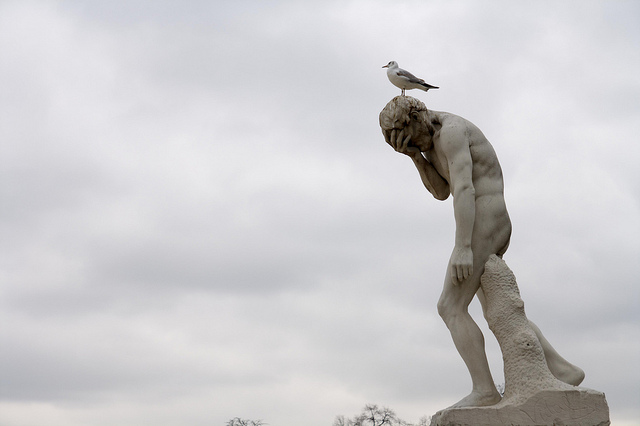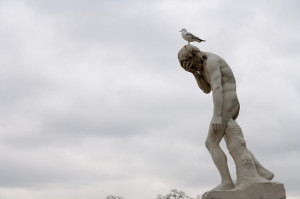Because I have no brothers, I have no means for comparison. Yet I was raised to believe that with enough hard work, passion and natural skill, there was little I could be turned away from in the world simply because I was born female. My parents never used any of these words; they raised me in a time and place where the common story was one where girls should and could have the same opportunity as the boys.
Even throughout my seminary years, studying in a predominantly white male world, I rarely came up against people who desired to put limitations on aspirations because of the way I was born. (Granted, I made it pretty easy by keeping aspirations low and quiet.) In fact, I came across two guys who legitimized and validated me beyond what was necessary, and I look back now with gratitude. The primary voice in a place where I was in the minority was welcoming, validating my childhood story.
It wasn’t until I was an adult that I realized the story my parents and my educators had told me about what I could and couldn’t do wasn’t the universal story. There was an incident where I was told, outright, my femaleness that took me out of the pool of opportunity. It was in a place that I wanted to help – I could help. I had the hard work, the passion and the gifts. But, apparently, my vagina was a tad intimidating.
The hurt I felt wasn’t only in the rejection. It was also the startling fact that my prior life story wasn’t the only option. Soon, thanks to the world wide web and gutsy bloggers, I found out that I wasn’t alone. There were parts of the world where the hurt I experienced was the norm. This was the life experience of many women. Their mamas and daddies told them different things about their future based on how they were born.
I was appalled. My friend KLR and I literally said, “Wait. This is still a thing? An issue?” I had been raised in a time and a place that said, “well, sure, it used to be this way. But we’re better than that now. We know better and we do better. You have nothing to worry about. Now go on and make yourself the best.” But as a country, as a society, I found out as an adult that we’re not better. For many people, it’s not “used to.” It’s “should.”
The people who had validated me all along were also appalled. They hurt for and with me. But I believe they were shaken to realize their efforts of making society better hadn’t reached their full potential.
There is no single story for any gender, race or orientation. Just because you have an uncle, best friend or college professor who shared his or her experience – and came out just fine – doesn’t mean that the rest of the world is giving the same opportunity. Just because you’ve lived a particular life doesn’t mean life happens the same way for people who share the box you check on registration forms. It is so very, very important to listen to people who are quietly and politely trying to explain that what we perceive as normal is not, indeed, standard protocol.
I’ve been silently watching the eruption of reactions to the recent brutalities against both black men and white cops. It’s all terrible. (Please, world, stop believing we need to choose sides.)
A have a variety of friends who are, or will be, raising black or brown babies. I hear the fear in their response to the obvious inequalities. They’re going to have a different conversation with their children than I will with my blond boys. I empathize and agree, it should not be this way. But another thing irks me: somehow these white women saying the same thing that black mamas have been crying for years suddenly validates this experience to the white world.
Why? Why can’t we believe the black mamas when they say, here’s what I’m teaching my kid about how to dress and respond to a traffic stop. Why is the horror and injustice much more palpable to white ears when said by someone who looks like them?
I feel like this is part of the problem. Somehow this illustrates exactly what those crying for racial equality are trying to say.
It shouldn’t take “one of our own” to convince us that the experience of race, gender and orientation may not be the only story. Perhaps it’s our hopeful optimism that keeps us from hearing that our progress hasn’t reached as far was we believe. We want to think that we’ve done better as a society in seeing the divine spark in all human beings. And when stories inform us that we’re a tad disillusioned, we don’t want to hear it. The gap between what we believe to be and what actually is can be hugely disappointing.
But we need to keep listening. We need to allow the differing experiences of others to be more than a possibility and instead admit we need to put our work boots back on.


